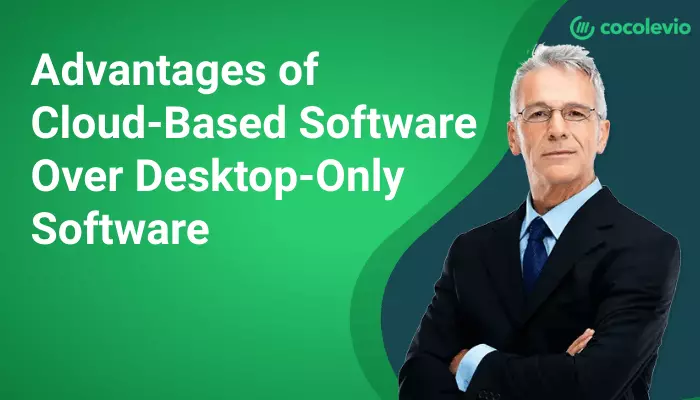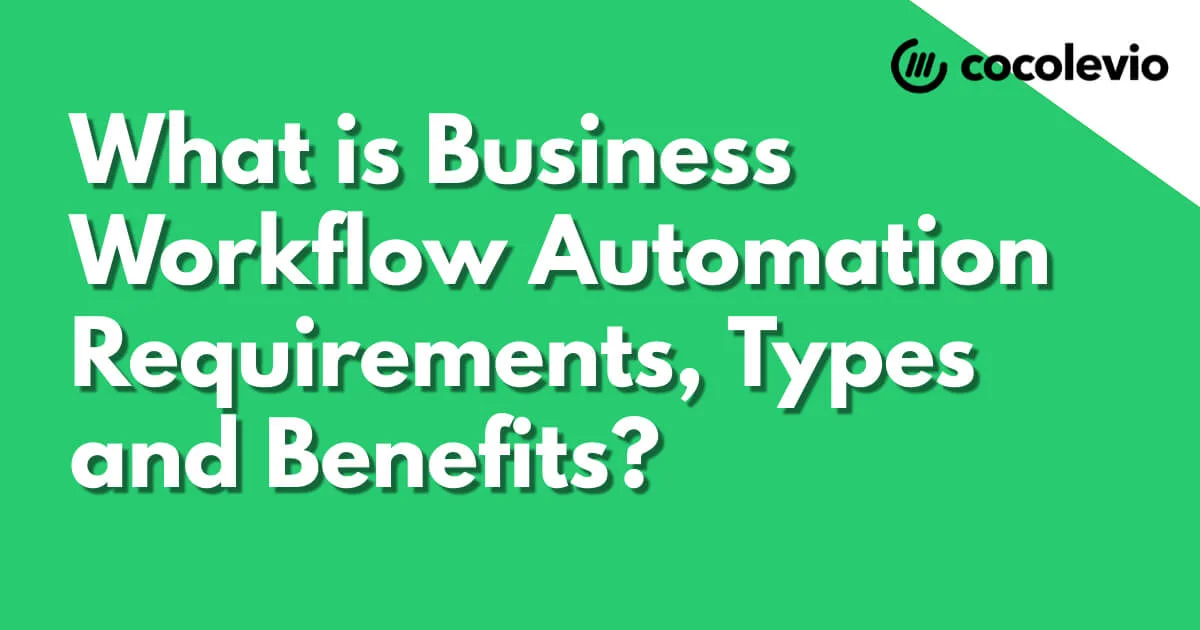
Advantages of Cloud-Based Software Over Desktop-Only Software
There is a multitude of software solutions available in today’s marketplace. Any solution is preferable to traditional systems based on spreadsheets. However, due to the advantages of cloud-based software, the traction around these has increased significantly. Its appeal derives from the fact that it allows you to conduct your business online and on a larger scale.
The business world is rapidly changing, and moving from desktop to cloud-based software enables companies to become more flexible. On the other hand, traditional desktop solutions quickly become outdated due to their numerous disadvantages and high costs.
You’ve come to the correct place if you’re curious about the advantages of cloud-based software over the classic desktop version. We’ll go over the key benefits of cloud-based software in further detail to help you decide on your company’s future growth.
How Cloud-Based Software Work?
Cloud-based software allows users to access and use applications over the internet instead of installing them on their computers. This type of software is a popular choice for businesses as it allows employees to work from anywhere and can help reduce IT costs.
One of the main benefits of cloud-based software is that it is more reliable than traditional software. Also, there is no need to worry about data loss in a system crash. In addition, cloud-based software is usually more affordable than its desktop counterpart, making it an excellent option for small businesses and startups.
Cloud-Based Software Vs. Desktop-Based Software
The desktop-only software can be downloaded and installed straight on your computer. Because the desktop program is pre-purchased, there are numerous additional expenses involved. There will be costs associated with hiring a support specialist to install and update the program whenever a new version is introduced after the initial purchase. It will also necessitate the installation of a server within the company to manage the data. In addition, there will be licensing fees for each computer system where the software is installed.
On the other hand, Cloud-based software is a considerably more cost-effective option. Users can access data and software via the cloud from any location, at any time, and on any device. With automatic backups and updates, your data is safe at all times. Moreover, multiple users can use the cloud software on various devices via the Internet without enormous costs.
Business software must be incredibly efficient and streamline operations so clients can receive better service. Compared to cloud software, traditional desktop-only software can be inefficient because it runs on just one computer. The cloud is a vast network of computer gear available over a web browser.
Benefits of Cloud-Based Software
When we compare cloud-based software vs. desktop-based software, there are many benefits that the former has because of how it operates. Below, we list some of the crucial benefits of cloud-based software:
Hassle-Free Accounting
Accounting tasks are more difficult with desktop software. Not only will delivering an output require far too much time and effort, but it will also be of little value.
Using cloud-based software will save you time and money and offer a stress-free accounting experience. You can also have plenty of add-ons linked with your program with a simple monthly subscription plan. These will aid in improving your business processes by streamlining accounting procedures and reducing the accountant’s workload.
Ease of Access
Accessibility is a big concern with desktop software. It is only available to one person at a time and requires physical closeness to dedicated computers for access. You can’t get to the data remotely, which is inconvenient, especially in an emergency.
In this category, cloud-based software easily wins. Thanks to the software’s global availability over the Internet, you can view the data anywhere. In an emergency, you can resolve problems using your computer. You can also carry your work around with you everywhere you go.
High-End Security
Using standard desktop software saves all your data on the computer or an external hard drive. All your crucial data will be lost if your computer fails unexpectedly and your backup drive (hard disc) is stolen. You won’t be able to recover it, resulting in a significant financial loss.
Although it may be difficult to believe, the cloud is one of the most secure data storage methods. Data is only available to users with login credentials, even in situations such as theft. Your data will also be unaffected if your laptop crashes unexpectedly. Because everything is securely saved on the cloud, you may access it from any device.
Your data will also be well protected from cybercriminals because the cloud program is run from a data center with numerous layers of protection.
Cost-Efficiency
Desktop software is initially purchased cheaply, but this is only the beginning. When employing desktop-only software, the organization must incur several additional charges. It covers hardware costs and annual software upgrades, often costly and compulsory.
Cloud software also outperforms in terms of cost. Because the cloud has a reasonable monthly fee, it also saves you money on hardware, utility, and software storage. You definitely won’t have to pay money for program installation. The software industry assures that the monthly subscribers will always have access to the most recent versions at no additional cost for new upgrades.
Backups and Maintenance
Because it is critical to maintaining your data up-to-date and secure, you may need to perform constant software upgrades. You must back up your data on hard drives to avoid losing anything if your computer system fails. As a result, desktop software necessitates excessive time on the user’s part.
These processes are carried out in cloud technology via automatic backups. For maximum protection, your data is automatically saved in numerous places. Thus, your data is available even if your computer fails. Additionally, because providers strive to keep the software current, the most recent versions are constantly in use.
Scalable Solution
Desktop software is not scalable as it requires users to reach a physical computer for work. It not only has a significant impact on their efficiency, but it also costs them a significant amount of time and effort.
Scalability is another strength of cloud-based software. Individuals can use cloud software according to their business requirements. You can make your software as big as you want it to be. You can also purchase packages that allow numerous users to connect to your software simultaneously.
Time-Efficient
Due to the emphasis on manual transactions, desktop-based software takes a lengthier amount of time. A single user manually enters all of the data into the software. This makes it not just a time-consuming process but also one with a high workload.
The most appealing characteristic of cloud computing software is that it saves people time and effort. There is no need to enter data into the system manually. The program will automatically sync the data with the most recent information because it is in the cloud. You will have direct online access to your banks and can quickly complete transactions.
In Conclusion
Believe it or not, cloud-based software has many benefits over its desktop counterpart. It will be surprising if desktop software becomes utterly obsolete in the next few years. You should take the necessary steps to implement cloud-based software for your firm if you have a growth-oriented mindset.
Compared to desktop-based software, a cloud-based solution will provide various advantages. If you want to leverage the benefits of cloud computing and cloud-based software, as mentioned above, you can contact the Cocolevio team. Cocolevio has the expertise and knowledge to design and develop a custom cloud-based solution that can fulfill your business needs.


